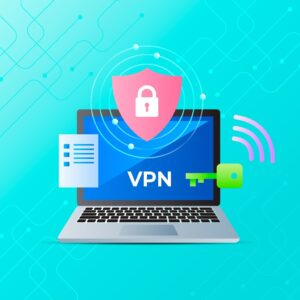Are young worried about getting their personal data leaked when browsing the web? In this article, we’ll discuss why is VPN the safest way to browse the internet and how it can help keep your data secure if you use VPN to browse internet.
Using the internet has become an integral part of modern life, but it can also be a dangerous place. With hackers and cyber criminals looking to steal personal information and malicious software lurking on every corner, it can be difficult to browse the internet safely. One way to protect yourself online is to use a Virtual Private Network (VPN).
How Can You Browse Safely with A VPN?
Using a VPN is the safest way to browse the internet because of the following reasons:
· VPN encrypts all of the data that is sent and received, making it unreadable to anyone who might be monitoring your traffic. This means that even if someone was able to intercept your data, they wouldn’t be able to understand it.
· VPN can help hide your real IP address and physical location. This makes it more difficult for someone to track you or figure out where you are.
· With VPN you can also help access websites that might be blocked in your region or that are otherwise inaccessible. This can help you browse safely in areas where censorship or other restrictions might be in place.
Does Using VPN Safer Than Private Browsing?
Using a VPN is the safest way to browse the internet than private browsing. Private browsing is a feature that is built into most web browsers, and it allows users to temporarily disable their browsing history and cookies while they are online. This prevents the browser from storing any information about the sites you have visited, but it does not encrypt the data that is being sent and received by your computer. You can also make it happen by updating your internet settings like Qlink APN, Dodo APN, Verizon APN, and so more like these.
A VPN, or virtual private network is a type of secure network connection that allows users to browse the web anonymously and securely. VPNs protect users’ data by encrypting all the data that is being sent and received by the user’s computer. This makes it difficult for anyone who is trying to monitor the user’s browsing activities or to intercept the data being sent and received.
In addition to providing better security, VPNs also provide a degree of anonymity for users while browsing the internet. When connected to a VPN, the IP address of the user is hidden. This means that websites cannot track the user’s physical location or associate the user’s activities with their IP address.
Which VPN Is Safe for Browsing the Internet?
Here is the list of the 5 best VPNs for safely browsing the internet:
· NordVPN
· Cybergoth
· ExpressVPN
· Surfshark
· IPVanish
These VPNs are highly secure and encrypt your data with AES-256 encryption, and have a strict no-logs policy. They have a large network of thousands of VPN servers in lots of countries that can help you access geo-restricted content.
How to Use VPN To Browse the Internet Safely?
Here are the steps to use VPN for browsing the web safely:
· Choose a VPN provider. Check different providers to get the best VPN service.
· Install the VPN software on your device.
· Open the software and sign into your account or create an account with the provider.
· Connect to a server that offers the best internet connection speed and location.
· Launch your web browser and start browsing the internet securely.
How to Pick the Right VPN For Safely Browsing the Internet?
Here are the tips for choosing the VPN to browse the internet safely:
· Choose a VPN service with a strong encryption protocol. Look for providers offering 256-bit or higher encryption protocols such as OpenVPN or IKEv2.
· Look for a no-logs policy. A reputable VPN will not keep logs of your online activity, ensuring your privacy and security.
· Make sure the service offers a good connection speed. This is important for streaming and downloading.
· Choose a VPN with multiple server locations. This will allow you to access content from different countries, allowing you to bypass geo-restrictions.
· Check for split tunneling. This is a feature that allows you to route specific traffic through the VPN while keeping the rest of your internet traffic untouched.
· Look for a user-friendly interface. This will make it easier to navigate and use the VPN.
· Choose a reputable provider. Make sure the provider has a good reputation in the industry and is known for providing quality service.
Conclusion
A VPN offers the safest way to browse the internet with privacy and security. It provides a secure tunnel between your device and the internet, allowing you to browse the web anonymously and protect your data from malicious actors.
While no single tool can guarantee complete online security, a VPN is an essential part of a comprehensive approach to protecting your data and ensuring your privacy while browsing the web.

